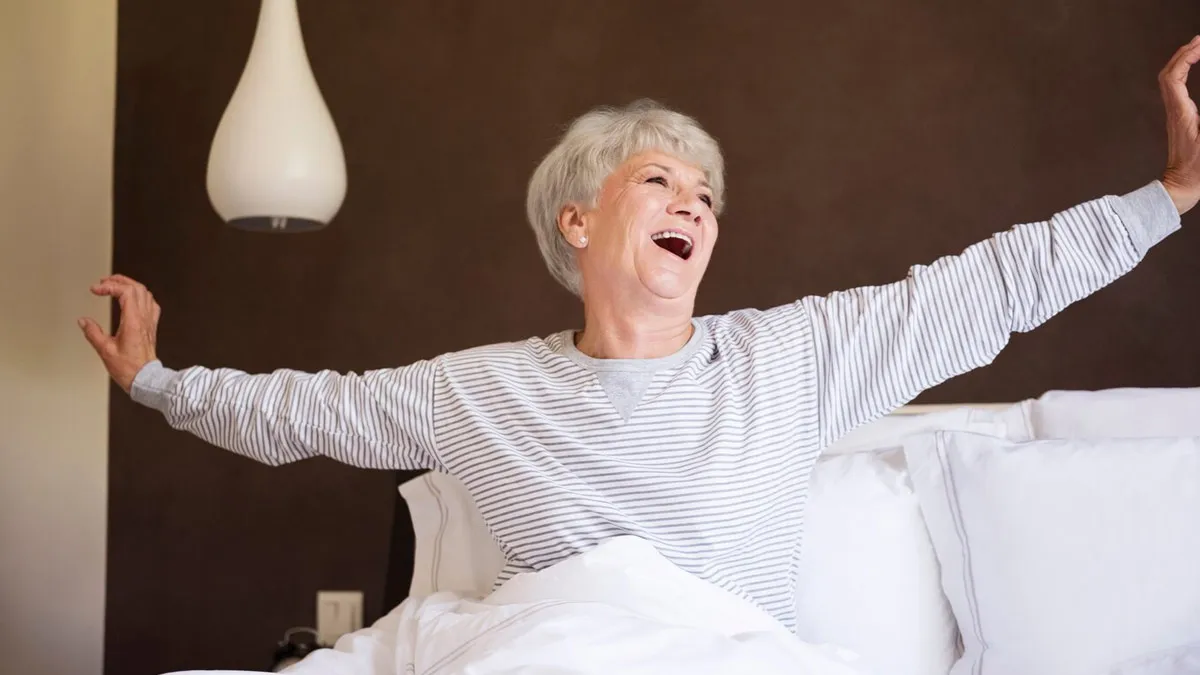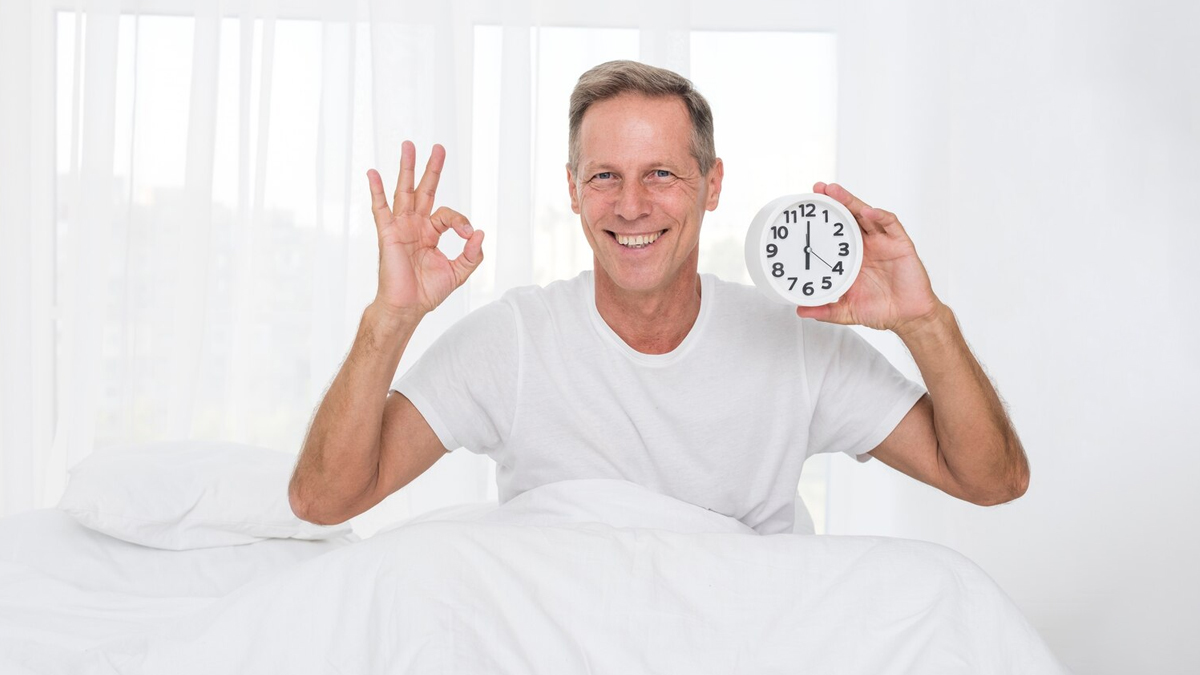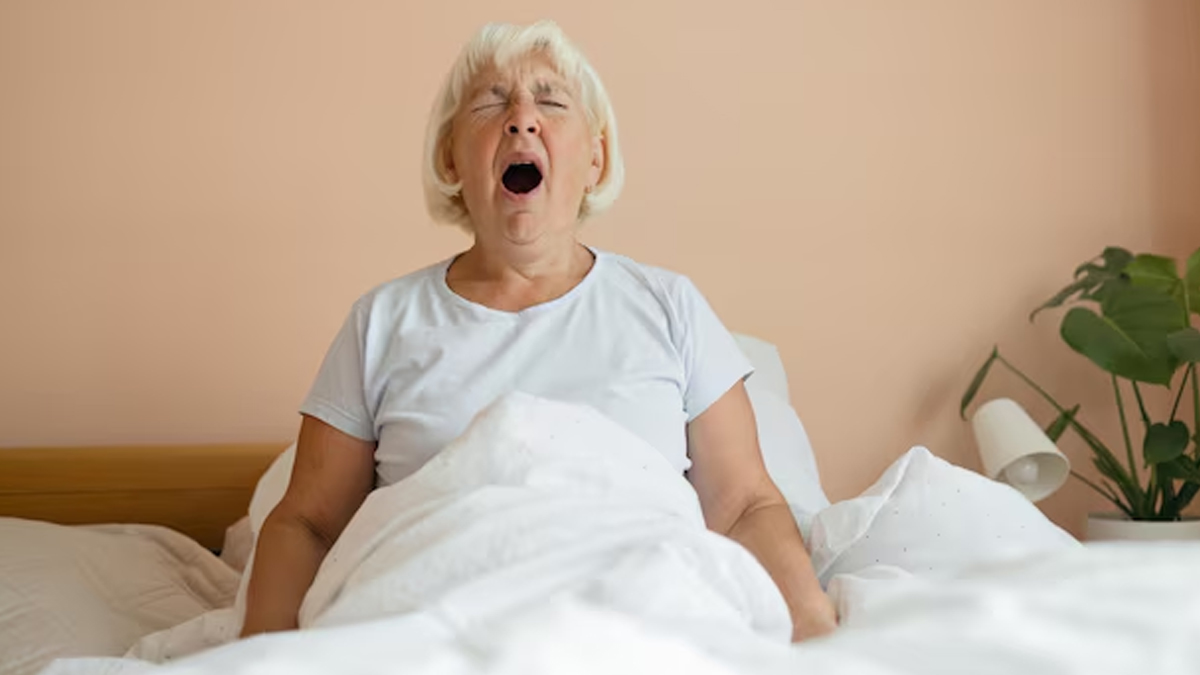
As we age, our body goes through several changes, including shifts in sleep patterns and duration. You’ve probably noticed how the elders in your home tend to wake up much earlier than everyone else—so early, in fact, that it makes you wonder how they manage it. The reason lies in a combination of internal mechanisms, including changes in circadian rhythm and hormones that come with age.
Table of Content:-
In a conversation with the OnlyMyHealth team, Dr Vikas Mittal, Pulmonologist and Director, Wellness Home Clinic and Sleep Centre, Delhi, breaks down the science behind why older adults often wake up early.
Also Read: Can Good Sleep Help Delay Cognitive Decline in The Elderly? Expert Shares Tips
Why Old People Wake Up Early

According to the Sleep Foundation, adults are usually recommended to get seven or more hours of sleep per night. However, as midlife hits, "the average amount of time a person sleeps each night tends to decrease by 30 minutes every 10 years."
The answer lies in biology, says Dr Mittal, who explains, “As we age, our internal body clock, also known as the circadian rhythm, gradually shifts. This means that the body begins to feel sleepy earlier in the evening and wakes up earlier in the morning. This phenomenon is called the advanced sleep phase.”
The circadian rhythm, which governs our 24-hour cycle of sleep and wakefulness, becomes less robust with age. “In younger individuals, this internal clock responds well to environmental cues such as daylight and darkness. But as we get older, the brain’s responsiveness to these cues diminishes. As a result, the rhythm shifts forward, meaning melatonin is released earlier in the evening, causing sleepiness, and cortisol – a hormone that helps us wake up – peaks earlier in the morning,” he adds.
This is why many older adults start going to bed and waking up earlier.
Additionally, older adults may also become more sensitive to light changes or may receive less exposure to bright morning light, both of which influence the sleep-wake cycle.
Changes In Sleep Architecture In Old People

Dr Mittal describes sleep architecture as the structure and stages of sleep during the night, including light sleep, deep sleep, and Rapid Eye Movement (REM) sleep. “With age, the amount of deep sleep decreases, and light sleep increases. This makes older adults more prone to waking up from minor disturbances such as noise or discomfort.”
He adds that old people also tend to wake up more frequently during the night. Sleep becomes lighter, shorter, and more fragmented as people age.
A 2010 study published in Semin Respiratory and Critical Care Medicine found that sleep patterns change significantly with age. Using polysomnography, researchers observed that total sleep time decreases by about 10 minutes per decade, and deep sleep drops by 2% per decade until age 60. REM sleep also declines slightly, while lighter sleep stages increase. Sleep becomes more fragmented, with more awakenings and lower efficiency.
Role Of Hormones
According to Dr Mittal, hormonal changes play a major role in why older adults experience different sleep patterns. “One key hormone is melatonin, which helps signal the body that it's time to sleep. As people age, melatonin is not only produced in smaller amounts but also released earlier in the evening, reinforcing early bedtimes.”
“Other hormones, like cortisol, start rising earlier in the morning, which can lead to earlier awakenings.
“The production of hormones like growth hormone and testosterone, which support deep sleep, also declines with age. All of these hormonal shifts contribute to the lighter and shorter sleep seen in older adults,” he adds.
Age-Related Sleep Changes Vs. Sleep Disorders

While it’s normal for older adults to wake up early, sometimes, these changes can also occur due to sleep disorders like insomnia.
One major way to differentiate between the two is to check if sleep difficulties interfere with daytime functioning or not. If they do, then it could signal a sleep disorder like insomnia.
Defined as difficulty sleeping at least three times a week for three months or more, chronic insomnia affects 10–30% of the global population, with even higher rates among older adults (up to 48%), as noted in a recent study published in the Journal of Activity, Sedentary and Sleep Behaviors.
Dr Mittal shares that age-related changes usually still allow for restful and adequate sleep, even if the timing shifts. In contrast, insomnia involves frequent trouble falling asleep, staying asleep, or waking too early, along with distress or impairment during the day.
If these symptoms persist for several weeks, professional evaluation is recommended.
Lifestyle Changes For Better Sleep Management In Older People
Several simple but effective habits can improve sleep for older adults. These include:
- Maintaining a consistent sleep schedule, i.e., going to bed and waking up at the same time daily, helps regulate the body’s clock.
- Getting morning sunlight, ideally within the first hour of waking, is particularly beneficial.
- Limiting caffeine, alcohol, and screen time in the evening can improve sleep quality.
- Engaging in physical activity during the day supports restful sleep, but it’s best to avoid exercising too close to bedtime.
- Creating a cool, dark, and quiet bedroom environment and keeping naps short and early in the day.
Conclusion
Waking up early is a natural part of ageing for many older adults. While these shifts are typically harmless, it's important to distinguish them from sleep disorders like insomnia, which can impact overall health and daily functioning. By understanding these changes and adopting simple lifestyle habits, such as maintaining a regular sleep schedule, getting morning sunlight, and creating a restful sleep environment, older adults can improve their sleep quality and overall well-being.
Also watch this video
How we keep this article up to date:
We work with experts and keep a close eye on the latest in health and wellness. Whenever there is a new research or helpful information, we update our articles with accurate and useful advice.
Current Version